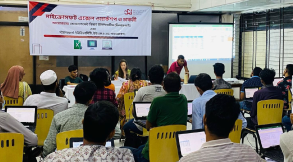This study collects time-use data for entrepreneurs and their workers in over 1,000 manufacturing firms in urban Uganda. The authors document limited labour specialization within the firm for establishments of all sizes and argue that this is likely due to the prevalence of product customization. The authors then develop a general equilibrium model of task assignment within the firm, estimate it with the data, and find large barriers to labour specialization. This setting is close, in terms of aggregate productivity and firm scale, to an extreme benchmark in which each firm is just a collection of self-employed individuals sharing a production space. Given how firms are organized internally, the benefits from alleviating other frictions that constrain firm growth are muted: most African firms resemble artisanal workshops whose business model is not easily scalable.
STEG Working Paper Series
• Research Theme 1: Firms, Frictions and Spillovers, and Industrial Policy
Self-employment Within the Firm

Related content



























































































